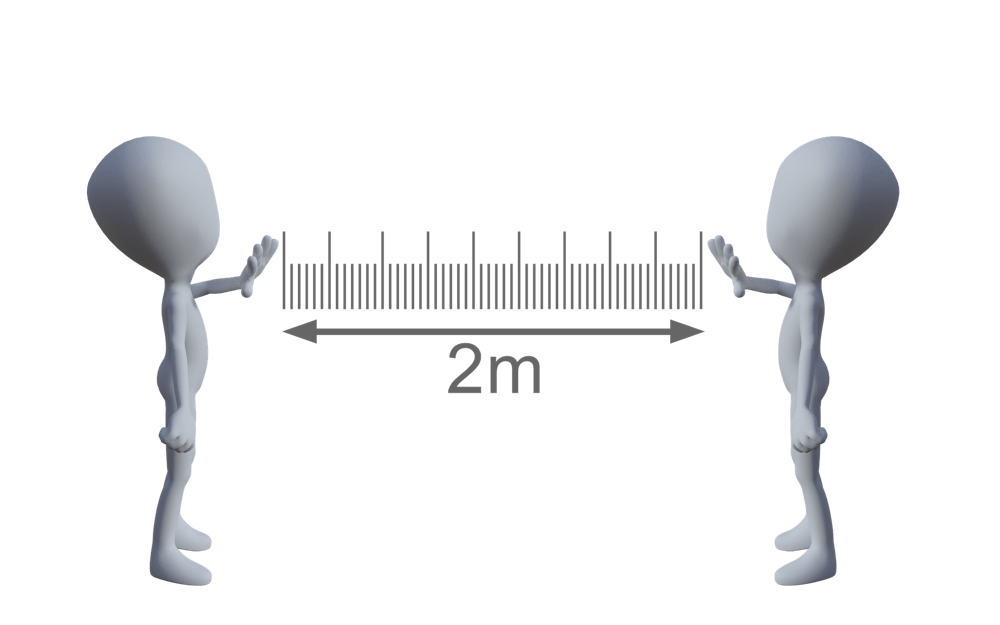For many of us, social distancing — forbidding large gatherings and keeping six feet away from others — is quickly becoming the new normal. As leaders in public health suggest that this may be the best way for us all to survive the pandemic, “flattening the curve” has become a mantra that unites us all.
Despite its practical utility, the practice can put students into uncomfortable positions that can ultimately be detrimental to health. How does one stay happy and healthy during a pandemic?
Junior Smitha Mahesh moved back to her hometown in Perrysville, Md. She carefully follows the guidelines laid out by the state.
“I no longer attend gatherings greater than 10 or more people,” she said in an interview with The News-Letter. “I have limited my contact to just my family and loved ones. I only go outside to walk around the park or exercise or to do essential household shopping.”
Social distancing is different from quarantine and social isolation. A 14-day quarantine is recommended for individuals who may have been exposed to COVID-19, so that they can confirm whether or not they have become infected with the virus. According to the School of Medicine, complete social isolation is only necessary for those who have a COVID-19 diagnosis.
By keeping physical distance between ourselves and others, we help to prevent the virus from spreading as rapidly, especially to those who are most vulnerable.
This was a concern for senior Zoya Khan when she returned to her hometown of Missouri.
“I live with my grandfather normally and I really didn't want to risk giving it to him, so I'm actually staying at my sister's apartment,” she said in an interview with The News-Letter. “I quarantined myself by sleeping on the futon and trying to stay six feet away. I haven't shown symptoms so we've definitely relaxed that.”
Further, social distancing allows individuals with the virus the best chance of recovering and decreases the burden on hospitals.
So there is a pretty strong case for social distancing. But it can wear on the nerves of even the most introverted of us.
The American Psychological Association (APA) predicts that during this period, individuals will experience heightened anxiety, boredom, depression, anger and stigmatization.
“Combating boredom has been a challenge. A person can only watch Netflix and do work for so long,” Khan said.
In response to this, and after taking some time to adjust to the new changes implemented, many students take a common sense approach for staying well.
Some of Khan’s tactics include connecting with her sister and trying to walk two miles everyday. She also prioritizes connecting with her friends.
“My friend and I are planning on Facetiming to workout together also even though we're in different areas.”
Khan also mentioned Netflix Party, a Google Chrome extension which lets users watch Netflix with their friends and chat at the same time.
The School of Medicine suggests establishing a brief morning ritual; 4-7-8 breathing; stretching and yoga; bringing pieces of nature into your home working space; and getting fresh air while remaining within the social distancing guidelines.
Mahesh also strives to remain connected to her loved ones and to rest under the stressful circumstances.
“I was initially overwhelmed by all the changes. But I made it my first mission to reach out to my closest friends, loved ones and family to have space and time to talk about what's going on,” she said.
Mahesh does note that despite her efforts to find normalcy, as a self-described social butterfly, she still faces challenges with the new guidelines.
“These times of social distancing can sometimes make me feel really sad, or overwhelmed with negative thoughts,” she said. “I try to distract myself by playing Animal Crossing on my switch; filling in my coloring book; or texting a friend to send me positive thoughts or puppy gifs.”
Khan’s and Mahesh’s intuitive practices of self-care follow closely with the recommendations health professionals are making.
In addition to maintaining a virtual social life, maintaining a routine and staying generally healthy through exercise and a good diet, the APA also recommends limiting news consumption to only the most reliable sources to avoid catastrophizing.
The Substance Abuse and Mental Health Services Administration emphasizes that individuals should embrace self-advocacy and search for resources that will help them provide for their basic needs.
Mahesh stressed the importance of staying positive and remembering these are uncertain times for all of us.
“I know I am not alone in this — we are all trying to find some normalcy and a routine during this pandemic,” Mahesh said.





